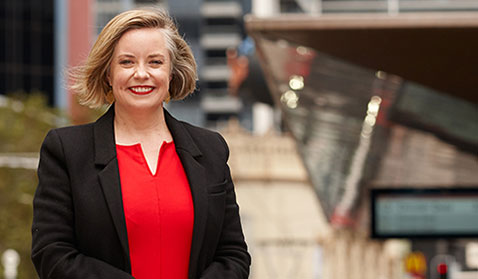The recent huge waves of support for women to have their voices heard paid off this week with the Morrison Government saying it will stage a national women’s safety summit in July.
The announcement acknowledges that Australian society, by and large, has not done enough to protect or support people who are vulnerable to family and domestic violence.
It also validates those organisations – local government included – that actively seek to prevent violence wherever possible as well as respond to it when it has occurred.
The role of councils in driving improvement was aptly summed up in ALGA’s submission to last year’s parliamentary inquiry into family, domestic and sexual violence.
“As the closest level of government to the community, councils are uniquely placed to influence and drive social change to reduce domestic, family and sexual violence through existing partnerships, networks and structures.”
One jurisdiction (Victoria) has a legislated role for local government in domestic violence, but councils across the country, I am proud to say, have initiated a range of measures to respond to the issue.
Local government associations, too, have played an important role, most notably through the development and implementation of the Prevention Toolkit for Local Government with the Our Watch organisation.
In its family, domestic and sexual violence inquiry report, the House of Representatives Standing Committee on Social Policy and Legal Affairs said Our Watch was one of the notable achievements of the National Plan to reduce violence against women and their children 2010-22.
The report’s authors found little else to celebrate, however, saying the plan has “not achieved its objective of a significant and sustained reduction in violence against women and their children”.
In laying out a roadmap for the next National Plan, the report adopted all of ALGA’s recommendations, including that:
- the federal government seek the agreement of state and territory governments to make a representative of ALGA a member of the National Federation Reform Council Taskforce on Women’s Safety;
- the federal, state and territory governments directly involve local government in the development and implementation of the next National Plan; and
- the federal government and each state and territory government co-fund on a 50-50 basis a dedicated family and domestic violence policy officer in each state and territory local government association for an initial period of five years.
Prime Minister Morrison has vowed that the National Women’s Safety Summit will listen to all parts of the community to make sure the next National Plan draws on the “best ideas”.
I would therefore encourage all those councils with skin in the game to engage and make sure their voices are heard.
Your ALGA, meanwhile, will continue to amplify local government’s role in violence response and primary prevention as well as its ability to value-add if properly resourced.
It’s way past time the other two tiers of government accorded this issue the energy, commitment, and follow-through it merits.
Linda Scott,
ALGA President



